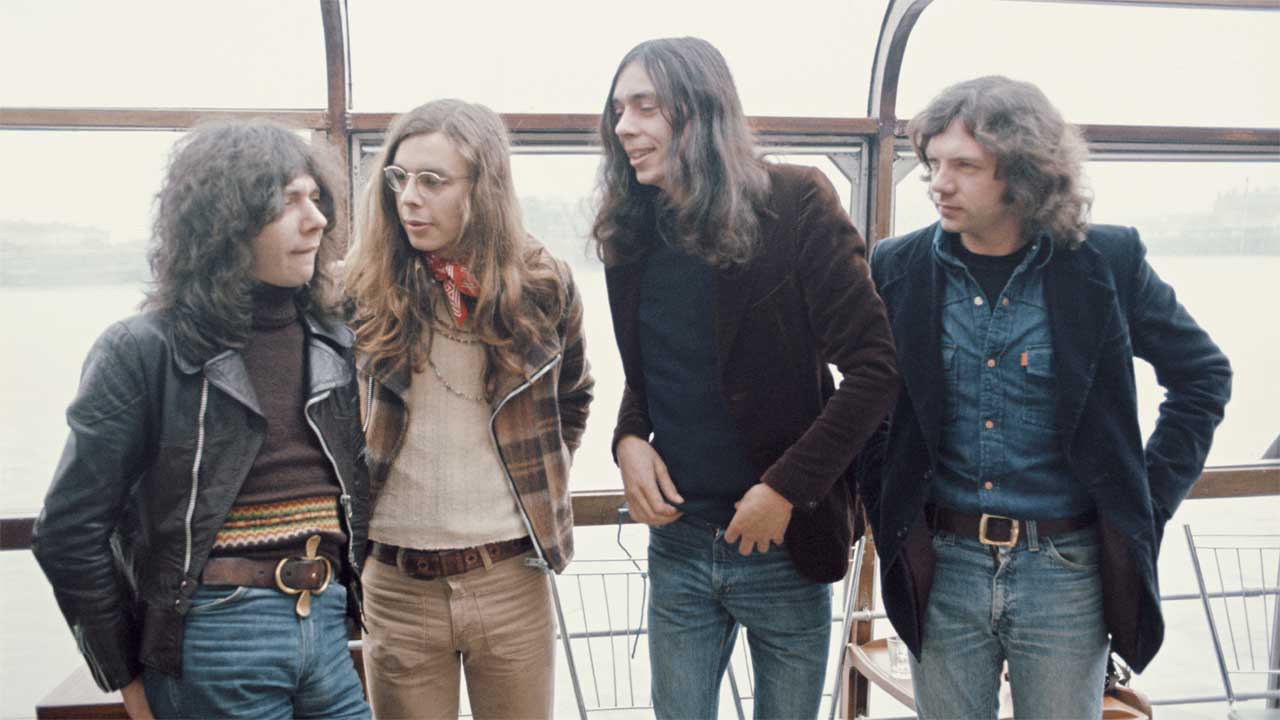Just over 50 years ago guitarist Andy Latimer – along with Doug Ferguson (bass) and Andy Ward (drums) – put Camel together from the ashes of jazz rock band Brew. Keyboard player Pete Bardens joined soon afterwards, and they released their often overlooked eponymous debut in 1973
The media largely dismissed or ignored Camel and its successor Mirage. But with 1975’s uncompromising prog rock concept album The Snow Goose Camel attained limited chart success, and even the previously contemptuous Melody Maker gave the band their Brightest Hope award.
As with several of their albums, The Snow Goose was entirely instrumental – a fact that, although attracting plaudits from musicians, was more the result of a confidence crisis than any stubborn refusal to conform: “The vocals on the early albums are buried through effects, as we were a bit embarrassed by them,” Latimer reveals.
“Halfway through recording the first album, the producer basically told us that none of us could sing. Which obviously influenced us into doing less vocals, and maybe that is the reason that we didn’t crack it big.
“We’ve also made some interesting decisions in our career. After The Snow Goose, our most successful album, we released Moonmadness, which was nothing like it. Most sensible bands would have recorded the Son Of Snow Goose.”
Camel’s efforts to compete with the likes of Genesis, Yes and Pink Floyd were hampered by incessant personnel problems. Firstly, Ferguson was fired (according to Andy Ward “he couldn’t keep up, so he had to go”). Then the working relationship between Latimer and Bardens – which had never exactly been harmonious – finally disintegrated with Bardens resigning in 1978. All of which occurred at a time when Ward was succumbing to his own addictions.
“Pete and I had always had an opposite relationship,” Latimer admits. “As always it came down to egos, and in the end we didn’t want to put up with all the non-stop tantrums and arguments. Andy was also going off the rails at that stage, as he had a lot of problems with drugs and alcohol.”
By 1982, following the release of Camel’s underrated Nude, Latimer was the sole remaining member. After The Single Factor (done with a band of hired hands for contractual reasons), then the comparatively unsuccessful Stationary Traveller in 1984, Latimer took an enforced break from Camel to fight and eventually win a lawsuit over royalties brought by their former manager.
By the late 80s Latimer decided he wanted to reanimate the legacy of Camel, but that desire was with met with scepticism and a woeful lack of interest from record labels.
“I went around the record industry, and basically became thoroughly depressed by it all. I was told that I was a ‘bloody dinosaur’, that Camel was a really dirty word, and basically to go away.”
Setting up their own label and operations centre in the form of Camel Productions, the band finally returned with a new line-up and recorded convincing and generally more accessible albums such as Harbour Of Tears in 1992 and 2002’s notable A Nod And A Wink. The modernity of these albums grabbed the attention of a new generation of listeners, and the internet gave the band an invaluable link with their fans.
“We’ve hung on to our ideals; I think if you try and write things just to please other people you’re on to a loser. And of course the website has enabled us to communicate directly with the people who are buying our records.”
With the sad loss of Pete Bardens to cancer in January 2002, the original version of the band can never be reunited. But Latimer has carried on: a re-recorded, extended version of The Snow Goose was released in 2013, and 2023 will see the band celebrate their 50th anniversary of their debut album with six dates across England and Scotland.
The original version of this feature appeared in Classic Rock 55.
